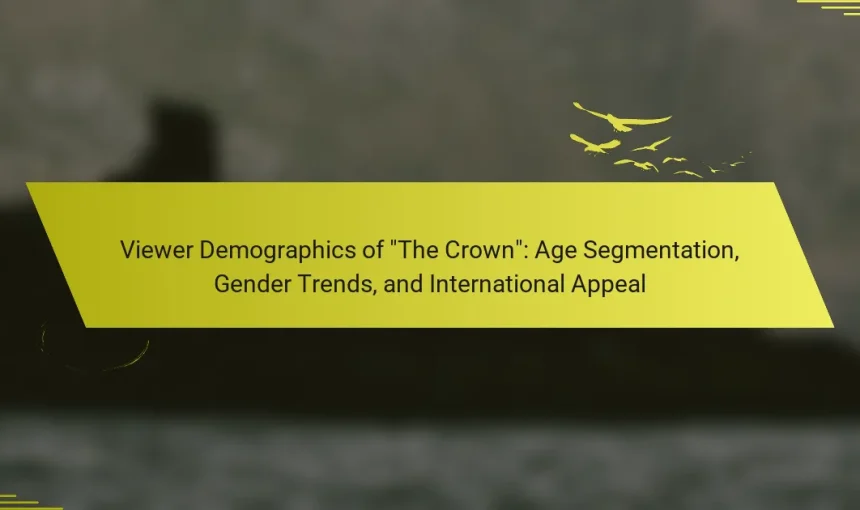Walter White is the central character in the television series Breaking Bad, whose transformation from a mild-mannered chemistry teacher to a ruthless drug kingpin serves as the focal point of the narrative. The article examines Walter’s motivations, which evolve from a desire to provide for his family to a quest for power and control, ultimately […]
“The Crown” is a popular television series that primarily attracts viewers aged 25 to 54, making this demographic the largest segment of its audience. The show enjoys a balanced gender distribution, with approximately 60% of its audience being female. Its global appeal is evident, as it reaches viewers in over 190 countries, with notable popularity […]
The article examines the legacy of the television series ‘M*A*S*H,’ which aired from 1972 to 1983, and its significant impact on American television. It highlights how ‘M*A*S*H’ skillfully combined comedy and drama to explore serious themes such as the absurdity of war, human relationships, and morality. The series is noted for its character development, particularly […]
Don Draper, the central character in the television series “Mad Men,” serves as a complex representation of identity, ambition, and the American Dream. The article explores Draper’s dual identity and his struggles with personal reinvention within the competitive advertising industry. Key themes include the impact of advertising on society, the dynamics of masculinity, and the […]
Jim Halpert is a central character in the television series The Office, known for his evolution from a laid-back salesman to a devoted husband and father. His character arc is significantly influenced by his romantic relationship with Pam Beesly, which transitions from unrequited love to marriage, highlighting themes of emotional maturity and commitment. Additionally, Jim’s […]
The article examines the impact of the non-linear narrative structure in the television series ‘Westworld’. This narrative technique presents events out of chronological order, enhancing character development and motivations while challenging viewers to piece together the timeline. Key themes explored include free will, identity, and consciousness, as characters navigate their autonomy amidst programmed behaviors. The […]
Daenerys Targaryen is the central entity in this article, which explores her transformative journey from exile to power in the series “Game of Thrones.” Initially a submissive figure under her brother Viserys, Daenerys gains strength through her marriage to Khal Drogo and evolves into a formidable leader following his death. The article highlights her pivotal […]
The article explores the narrative structure of ‘Fargo,’ focusing on its anthology format, tone shifts, and character complexity. It highlights how the non-linear and episodic storytelling intertwines multiple storylines centered on crime and morality, enhancing viewer engagement. Key elements include the juxtaposition of dark humor and dramatic scenes, the use of voiceovers for character insight, […]
Set design innovations in contemporary television productions are primarily characterized by the integration of virtual reality (VR) and augmented reality (AR) technologies, which facilitate immersive environments and real-time manipulation. Notable examples include the use of LED screens for dynamic backgrounds in shows like “The Mandalorian,” enhancing visual storytelling. Additionally, modular set designs, sustainable materials, and […]
The article examines the unique narrative structure of the television series ‘Stranger Things,’ focusing on its use of flashbacks, parallel universes, and complex character relationships. It highlights how non-linear storytelling enhances character depth and motivations through flashbacks, while parallel universes add tension and complexity to the plot. The interwoven character relationships further elevate emotional engagement […]









